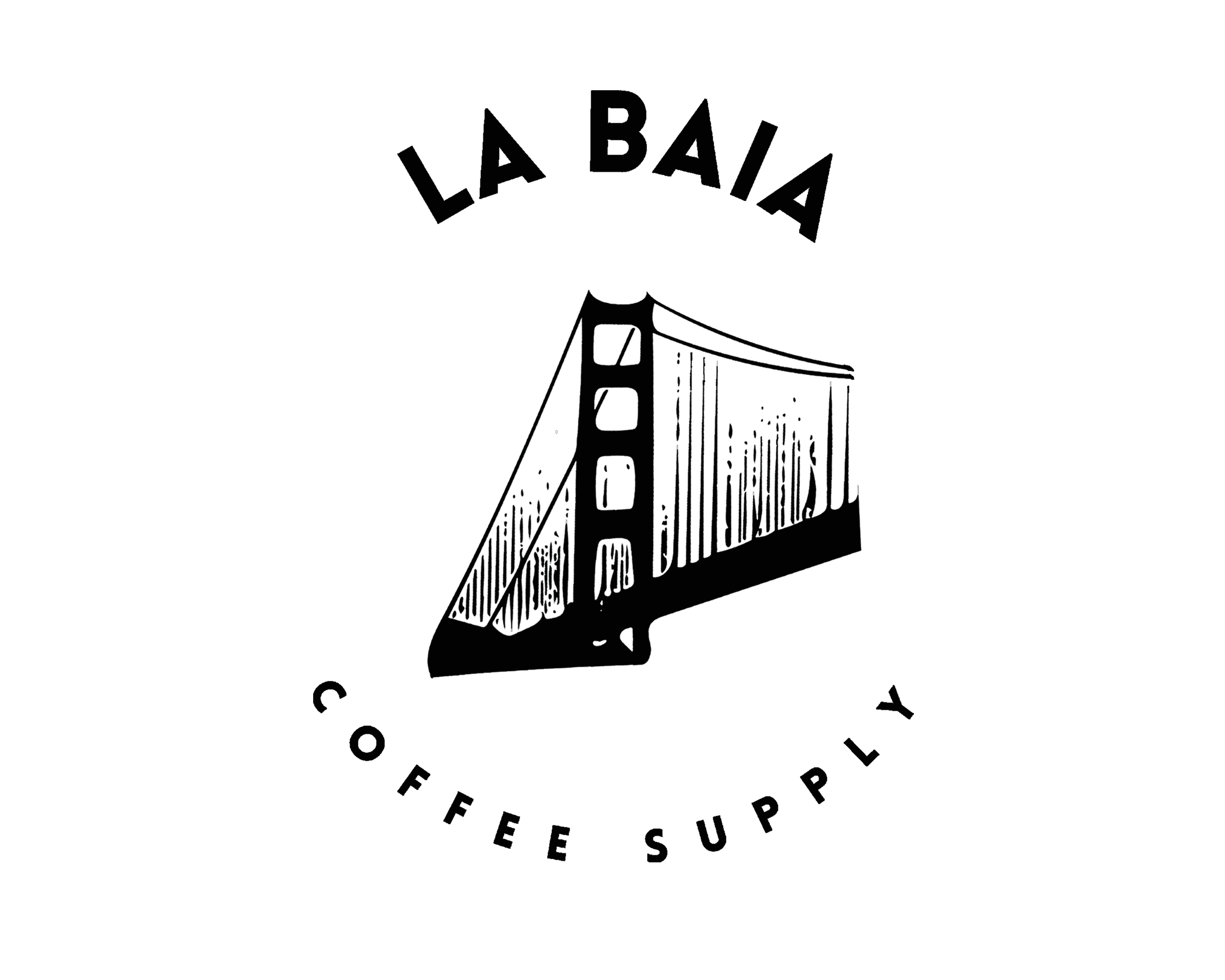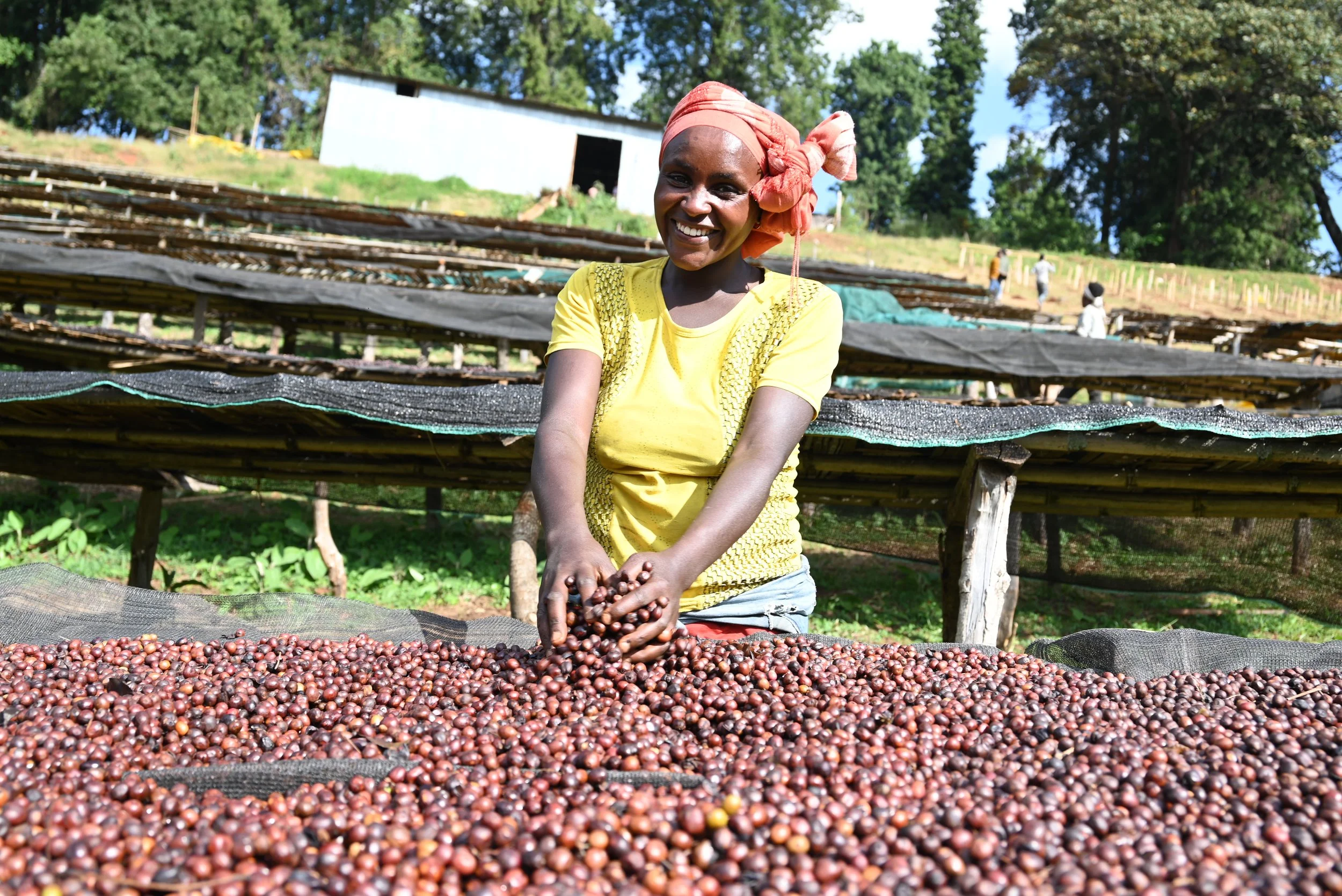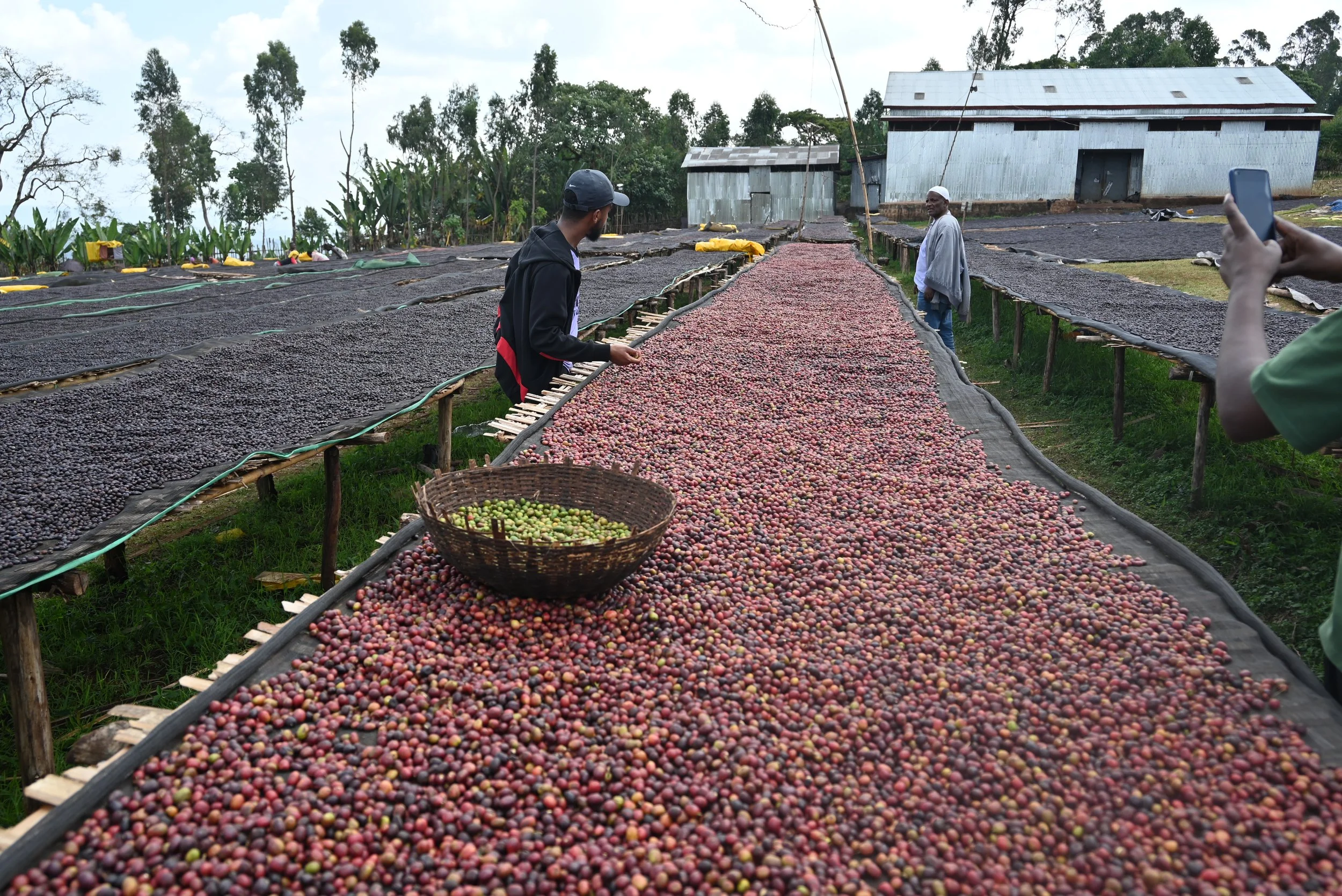Guji Uraga SUKE G1 NATURAL
GUJI URAGA SUKE
Producers: Suke Werekata Kebele (Village) Smallholders
Mill/Washing Station: Suke Werekata Washing Station by Tracon
Bag Size: 60 Kg Grainpro
Region: Guji, Uraga - Suke Werekata Kebele (Village)
Elevation: 2,000 - 2,300 MSAL
Grade: 1
Variety: 74110, 74112 & Local Landraces
Process: Natural
Drying Time: 20 - 23 Days on raised drying beds
summary
Tracon’s reputation is well regarded and are no strangers among COE members globally. In 2021, Tracon chose to participate in Ethiopia’s second ever Cup of Excellence Auction and had 2 different coffees score an impressive placement in the top 20 of all the coffees submitted in the Ethiopia COE Auction. In 2021, a record-breaking number of entries 1,849 for any countrywide Cup of Excellence competition entered the competition to compete that particular year. Placing in the best of top 20 coffees produced in Ethiopia should speak volumes for itself..
Suke Werekata is a remote village (Kebele) in the Uraga district located in the Guji Zone. This area is home to several hundred small farmers whose homes and farms span the area between 2,000 and 2,300 meters above sea level. Some of the highest elevations in Ethiopia. Farmers from Suke Werekata harvest coffee exclusively by hand and deliver it to the processing station owned and operated by Tracon. Farming methods in the region remain largely traditional. Uraga farmers typically intercrop their coffee plants with other food crops. This method is common among smallholders because it maximizes land use and provides food for their families. Another interesting factor, most farms are also organic-by-default. Farmers in the Guji Zone typically use very little if any fertilizers or pesticides. Most farm work is done manually by their immediate family when harvesting cherry.
To capitalize on the magnificent climate, Tracon provides producers who deliver to the Suke Werekata Station training to help them improve on their quality and get better yields with their plants. Training focuses on procedures for harvesting and transporting. Tracon is a vertically integrated site which universally provides services and assistance to all of their sites and local communities. To enhance quality and value building in the community they accomplish this in several different ways, they provide loans and offer incentives on cherry to receive better quality cherry. Most farmers only receive money for their coffee once a year, so the site provides loans to farmers in need, which they can then repay with coffee when it is harvest time. This gives smallholders some financial stability despite irregular income, helping them focus on the task of caring for their coffee trees. This station is quickly growing its reputation amongst insiders as one of the highest quality producing stations that’s known for their amazing cherry quality sourced from the surrounding forests. In fact, it is the only station in Ethiopia Tracon elects to not float cherries due to how well trained the farmers are at picking and identifying quality cherry. Once the cherries arrive thay are separated 700 kilograms per batch and laid out on the raised beds spanning 25 meters long (82 feet) and 1 meter wide (3 feet). The coffee is laid out to dry on the raised drying beds for 20 - 23 days. The first two days of drying are critical to the evolution and development of the coffee. The cherries are rotated by hand every hour for the first two days during the drying period to avoid uneven drying and consistent exposure to air and sunlight. Once the coffee is done drying, the coffee is collected and delivered to tracon’s local dry mill located in Uraga, Solomo city to remove the dried cherry husk (dried cherry skin) from the parchemnt. Following this stage the coffee is loaded and transported to Tracon’s main dry mill located in Addas Ababa for further dry milling.
Tracon has developed a state of the art modern coffee cleaning and milling facility in Addis Ababa where the coffees are all transferred for final milling following the initial collection and post harvest production phase of all their coffee. The facilty is equipped with the latest coffee processing equipment to sort coffees by density, size and also utilize high level pieces of automated equipment like optical color sorters for final sorting. Each lot contracted with Tracon this year was done on a prebook basis prior to the coffee harvest. We believe embracing this model equips partners with the tools and resources to provide early harvest premium payments directly to farmers and to help producers mitigate and calculate risk knowing they have a secured buying partner on the other end to support their efforts.
JARC VARIETIES - 1974/1975 CBD RESITANT SELECTIONS
Currently the majority of coffee produced in Ethiopia is produced from three production systems: forest, semi-forest, and garden coffee. The level of variation among coffee varieties in the forest and semi-forest production systems are recognized as a higher degree of quality than garden coffee production systems. Farmers in Ethiopia have always had an interest in changing the genetic base of their varieties in different production systems in pursuit to improve coffee production and yield. The Jimma Agricultural Research Center (JARC) has made huge contributions to the global coffee community with its efforts over the past 40 years to expand knowledge through scientific research and studies in Ethiopia. In the efforts by the (JARC) to push towards revolutionizing the development of modern coffee varieties in Ethiopia they have created innovative methods to genetically combat CBD (coffee berry disease) and increase the overall efficiency in production and yield for coffees grown naturally in the forest and semi-forest production systems.
In 1971, coffee berry disease (CBD) was spreading throughout Ethiopia and likely had been around for years. Initial trials in 1972 used chemical-based fungicides to test prevention of the disease. While these proved successful, it was decided that a better solution would be to collect and use the broad genetic diversity of Ethiopian coffee to develop CBD-resistant varieties. The selection process for these varieties began in 1973 and resulted in collections from 19 locations in Southwestern Ethiopia. After collecting seeds from 639 different coffee trees originally collected in the areas of Gera, Metu-Bishari, Washi and Wush Wush for showing resistance against CBD. For 1974 and 1975 CBD resistant improved coffee varieties, if a variety name starts either with a 74 or 75 it is a selection number given to the variety and can represent a broader group of different varieties that stem from the 1974 and 1975 CBD Resistant Selection Group.
Gera Selection: 75227, 741
Metu-Bishari: 74165, 74158, 74112, 74148, 74140
Washi: 7487, 7454, 7440, 744
Wush Wush: 754
Variety Gibirinna 74110 & Serto 74112
The level of variation among coffee varieties in the forest and semi-forest production systems are recognized as a higher degree of quality than garden coffee production systems. The 74112 variety begins with “74” to indicate the official cataloging and selection in 1974. Variety 74112 originates in the Metu-Bishari forest and was released in 1979 from it's counterpart 74110 for its disease resistance and yield potential. The trees are smaller in stature and compact.
Farmers in Ethiopia have always had an interest in changing the genetic base of their varieties in different production systems in pursuit to improve coffee production and yield. The Jimma Agricultural Research Center (JARC) has made huge contributions to the global coffee community with its efforts over the past 40 years to expand knowledge through scientific research and studies in Ethiopia. In the efforts by the (JARC) to push towards revolutionizing the development of modern coffee varieties in Ethiopia they have created innovative methods to genetically combat CBD (coffee berry disease) and increase the overall efficiency in production and yield for coffees grown naturally in the forest and semi-forest production systems.
REGIONAL INFORMATION
Uraga, Guji Zone
Uraga is a renowned coffee-producing region located in the Guji Zone of southern Ethiopia. Situated within the Oromia region, Uraga has gained recognition for producing high-quality coffees. The area's unique climate, elevation, and soil composition contribute to the distinct flavors and characteristics that are notable to Uraga. The Guji zone is home to the Oromo people, which is one of the largest and oldest ethnic groups in Africa and has a significant presence in the Guji Zone. Oromo people have their own distinct language, culture, and traditions.
Uraga's coffee-growing environment benefits from its high altitude, which ranges from around 1,900 to 2,300 MSAL. The region's altitude, coupled with the region's moderate temperature and ample rainfall, create optimal conditions for growing Arabica. The diverse microclimates within Uraga allow for the cultivation of various coffee varieties, resulting in a broad spectrum of flavors and profiles. The Guji Zone, including Uraga, is known for its rich biodiversity. The region's lush landscapes, high elevations, and diverse microclimates provide a habitat for various flora and fauna. This biodiversity contributes to the complexity of the coffee's flavors, as the surrounding environment plays a significant role in shaping the coffee beans' characteristics. The four major crops grown in the woreda are maize, wheat, barley and navy beans, as well as ensete or better known as the “false banana” where they are grown in some parts of Uraga.
Coffee from Uraga is often celebrated for its vibrant acidity, floral and big fruit profiles. Uraga's coffee industry has gained international attention among coffee enthusiasts and buyers seeking unique and exceptional coffees. The region's commitment to producing specialty-grade coffee has contributed to its growing reputation within the global coffee market. As a result, Uraga has become an important player in Ethiopia's coffee export industry, helping to showcase the country's rich coffee heritage and distinct flavor profiles notable with Ethiopian coffees.










